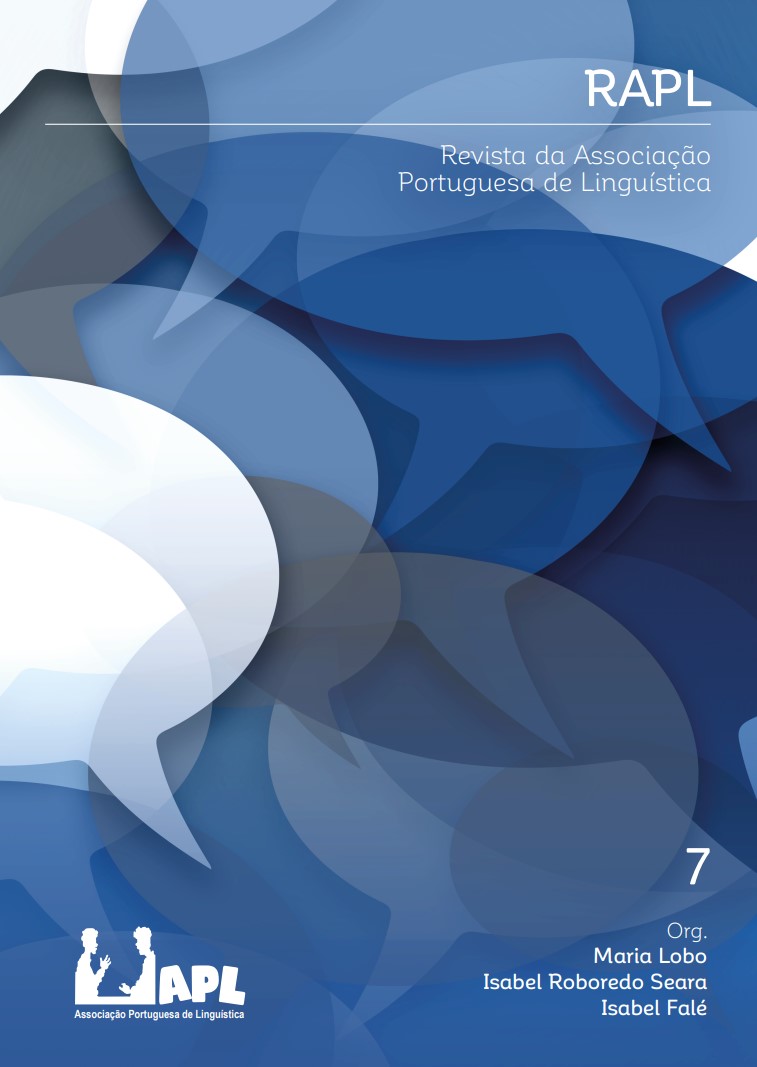As propriedades temporais das orações infinitivas completivas e finais com para em Português Europeu
DOI:
https://doi.org/10.26334/2183-9077/rapln7ano2020a19Palavras-chave:
semântica, relações temporais, infinitivos, orações finais, orações completivas, 'para'Resumo
In this paper we investigate three different types of infinitive constructions involving para in European Portuguese, viz. purpose clauses, complement clauses in which para behaves as a true complementizer and complement clauses in which para behaves as a preposition pertaining to the main sentence. We begin with a brief characterization of the Portuguese simple infinitive, arguing that, in appropriate conditions, it exhibits defective temporal properties that are, nonetheless, non-specified whenever another component in the sentence ascribes temporal information to the infinitive clause. Then we compare the three constructions under analysis: although there are clear divergences in their semantic behaviour, we observe that in all cases the situation represented by the infinitive clause is systematically located in an interval that follows its Temporal Perspective Point provided by the main clause. In order to account for this regularity, we propose that, in these contexts, (i) the infinitive is non-specified regarding its temporal features and (ii) the lexical properties of para are responsible for the posteriority reading stated above.
Downloads
Downloads
Publicado
Como Citar
Edição
Secção
Licença
Direitos de Autor (c) 2020 Purificação Silvano, Luís Filipe Cunha

Este trabalho encontra-se publicado com a Licença Internacional Creative Commons Atribuição-NãoComercial-CompartilhaIgual 4.0.
Os autores mantêm os direitos autorais e concedem à revista o direito de primeira publicação. Os artigos estão simultaneamente licenciados sob a Creative Commons Attribution License que permite a partilha do trabalho com reconhecimento da sua autoria e da publicação inicial nesta revista.
Os autores têm autorização para disponibilizar a versão do texto publicada na RAPL em repositórios institucionais ou outras plataformas de distribuição de trabalhos académicos (p.ex. ResearchGate).





